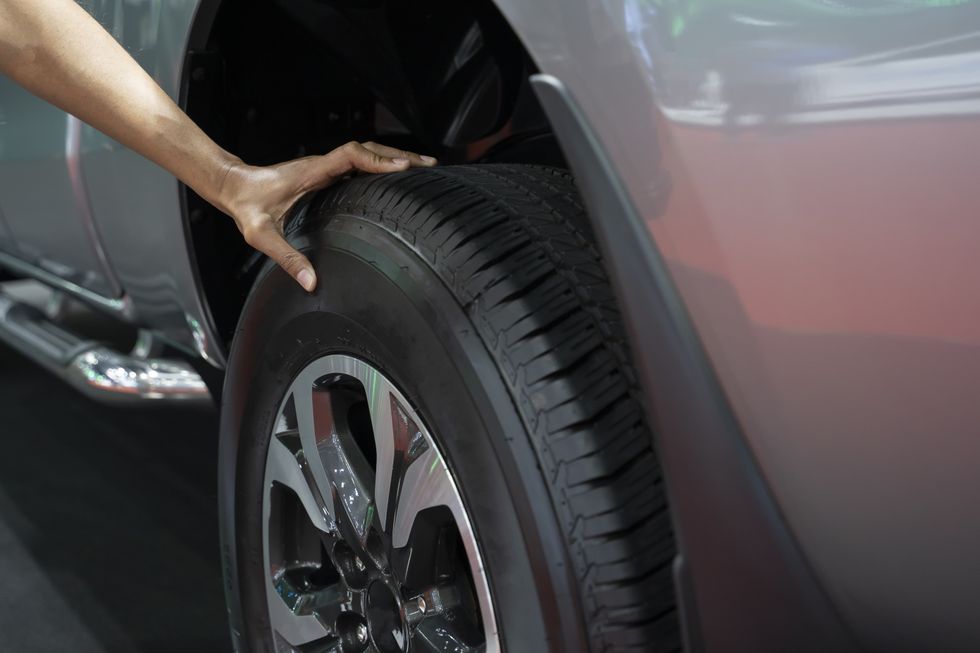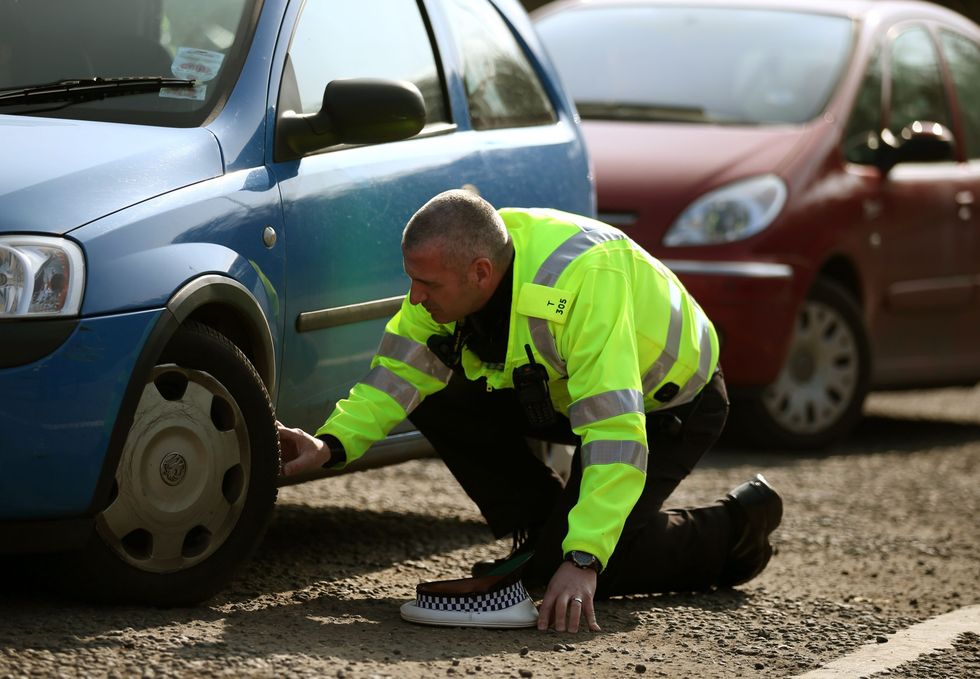Switching tyres could help drivers save money on fuel
Don't Miss
Most Read
Trending on GB News
Drivers could save thousands of pounds by switching their tyres to match the warmer climate as experts suggest this trick could help with durability and reduce wear and tear.
Motorists around the UK have been told that they could save around £10 a month in fuel by switching to normal summer tyres as temperatures increase.
The money-saving tip comes as experts have warned that winter tyres, which are designed for use in damp, colder conditions, increase the amount of fuel needed to propel the car.
However, in the summer months, less grip is needed on the roads with summer tyres adhering to the temperature change and therefore drivers can use less fuel.
Do you have a story you'd like to share? Get in touch by emailingmotoring@gbnews.uk

Tyres need to have a 1.6mm tread depth
GETTYWarmer tarmac puts more strain on the softer tyres causing them to wear down below the 1.6mm legal minimum limit quicker, which experts warn could impact a vehicle’s handling and stopping distances.
Dan Jones, operations manager at DrivingExperience.co.uk, said: “Many people wouldn’t even consider checking that their car is fitted with the correct tyres for the season, but it is so important.
“Using the wrong type of tyres in summer will not only hit your pocket hard, but it could increase your braking distance by as much as seven and a half metres which is quite worrying.
“I urge every driver to check their car is using suitable rubber this summer.”
Jones explained that most winter tyres will feature one of two symbols on the sidewall, either the M+S symbol or the three-peak mountain symbol with a snowflake icon which depicts what climate it is most suitable for.
Summer tyres notably may feature a sunshine icon which lets drivers know which type they should be using.
He warned: “With nearly 5,000 collisions on the UK’s roads over the past decade as a result of illegal, defective, or under inflated tyres, it’s a serious offence for which you could receive three points on your licence and a fine of up to £2,500 per tyre, which could increase to a fine of £10,000 and 12 penalty points for a vehicle with four illegal tyres.”
Vehicles are required to have a minimum 1.6mm tread depth with tyre experts Michelin stating that it is imperative to change tyres once this limit has been reached to avoid compromising driver safety and breaking the law.
If tyre tread depth is insufficient, it will cause the stopping distances of cars to be longer.
On wet road surfaces, experts warned that tyres will not be able to disperse water effectively, meaning drivers could risk losing control of the vehicle.
The National Tyre Service recommends drivers that get their tyres changed at 2mm instead of waiting to hit 1.6mm.
Tyres can be deemed unsafe if they have a tear in them or any cuts, or bulges which are more than 25mm or over 10 per cent of the section width of the wheel.
LATEST DEVELOPMENTS:
- 20mph speed limit U-turn will 'leave our system in chaos' after drivers call for complete ban in Wales
- Major car brands warn the UK is 'sleepwalking' into 'the cusp of a crisis' with electric car sales slump
- Britons warned of the 'most dangerous places to drive' with major speeding issues - is your area at risk?

Drivers could be fined up £10,000 for incorrect tyres
PARichard Croft, tyre expert and operations director, from etyres, said: “Neglecting to check your tyre pressure before embarking on a road trip is like leaving home without a map – you're setting yourself up for a journey filled with unnecessary risks and potential hazards.
“By the time these sensors flash, your tyre is severely underinflated so tyres should still be regularly checked before road trips regardless.”









